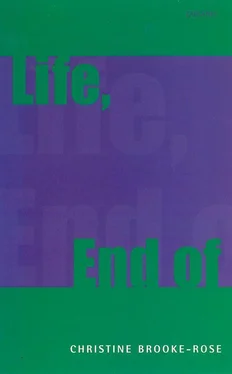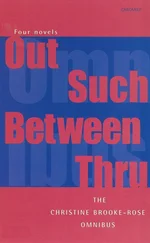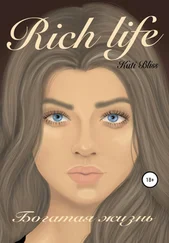Christine Brooke-Rose - Life, End of
Здесь есть возможность читать онлайн «Christine Brooke-Rose - Life, End of» весь текст электронной книги совершенно бесплатно (целиком полную версию без сокращений). В некоторых случаях можно слушать аудио, скачать через торрент в формате fb2 и присутствует краткое содержание. Год выпуска: 2012, ISBN: 2012, Издательство: Carcanet Press Ltd., Жанр: Современная проза, на английском языке. Описание произведения, (предисловие) а так же отзывы посетителей доступны на портале библиотеки ЛибКат.
- Название:Life, End of
- Автор:
- Издательство:Carcanet Press Ltd.
- Жанр:
- Год:2012
- ISBN:9781847775726
- Рейтинг книги:5 / 5. Голосов: 1
-
Избранное:Добавить в избранное
- Отзывы:
-
Ваша оценка:
- 100
- 1
- 2
- 3
- 4
- 5
Life, End of: краткое содержание, описание и аннотация
Предлагаем к чтению аннотацию, описание, краткое содержание или предисловие (зависит от того, что написал сам автор книги «Life, End of»). Если вы не нашли необходимую информацию о книге — напишите в комментариях, мы постараемся отыскать её.
by a master of experimental novels finds the author reflecting on her old age and its effects on her writing. As she reflects on her own career, her experiments with narrative, and on the narrative she writes here, she ultimately reasserts herself and accepts the life behind her.
Life, End of — читать онлайн бесплатно полную книгу (весь текст) целиком
Ниже представлен текст книги, разбитый по страницам. Система сохранения места последней прочитанной страницы, позволяет с удобством читать онлайн бесплатно книгу «Life, End of», без необходимости каждый раз заново искать на чём Вы остановились. Поставьте закладку, и сможете в любой момент перейти на страницу, на которой закончили чтение.
Интервал:
Закладка:
And then it happens.
The author collapses, into the character again, scattering the reader.
Two o’clock. The author sits at the computer, expecting a short visit from Dominique, the technician come to remind himself just what the installation is so as to order a laptop. The bell rings. The two zappers are grabbed, one for the gate and one for the house entrance up the stairs. The body stands, with chair-arm support to zap them both and to check the gate movement which must not open fully and block the stairs. The zimmer forgotten. Then plonk: down, near the armchair, then shrieking with pain in the right hip at even a millimetre move, a pain far worse than that of the double sprain. Luckily the house door is now open, otherwise no phone is reachable. The picking up by Dominique is strong but gentle, the replacement in the armchair also, but every inch a scream. The doctor can be called at last.
After Dominique’s departure, whose car could block hers, she comes. It’s the joint of the femur gone. A hip replacement is required. She rings the ambulance firm become so familiar.
The trip downstairs wrapped in a strong bag is a solo of yells. Then the stretcher. And so on. Et cet air-là.
The whole hospital routine begins. The double sprain is a home healing, so much more pleasant, but a hip replacement is not. The cause: forgetting the zimmer again. So, just as the walking becomes almost normal, back it crashes, to a far worse state, which needs a longer time of re-education to re-attain anywhere near the quasi-cure reached earlier. And perhaps never to reach it, due to incurable Old Polly, who will bring the body to a permanent wheelchair and all the ceteras earlier than expected. To join the man of Handicap Year who travels everywhere. Or the others who can’t visit a specialist except on a chair downstairs then a stretcher into the ambulance. A forbidding nightmare.
This hospitalisation is the sixth in two years. Vasco de Lama, what are you waiting for? A bit more humour perhaps? Thus: when the bed is surrounded with rain-water from a leak in the wall, so that zimming to the loo is forbidden, ‘Don’t worry, I’m English and used to living on an island.’ Silence as they mop up. Or unfunny but meant lightly. Or unheard because they chatter and the voice problem so unexpected with Rebekah and Dan seems to be recurring. Perhaps voice is another physical organ that degenerates fast. But evidently not always: a woman next door seems to have lost all else but the voice, which cries out to the world, the planet, the universe, laughing, gurgling, shouting, arguing, proclaiming, bellowing, calling, scolding, wailing, announcing, screeching, unaware that the universe no longer listens to her.
The self-indulgent first person returns slowly but feels impersonal, the way public concern and kindness become busy routine, and the personal wholly private, even when there’s no one there to be private from. As with that waking absorption of the bi-local bitemporal, in hospital stripped of all such hauntings. Perhaps that is what occurs in death, the first person suddenly regained at the very moment of its effacement.
Or not quite regained and not yet effaced. New causal clinches occur. The slippers and the dressing-gown are a struggle to put on (who dresses, the gown or the nurse?). No nurse has heard of polyneuritis, which produces pains and charcoal burnings, sudden flinchings and loss of balance at the zimmer, independently of and long previous to the hip-blip, therefore ignored in the physical care such as the washing of feet and drying of toes. Ow! Except for the physio-girl who actually looks it up in a reference book and reads out its aetiology as kidney inefficiency. Wow! No doctor ever tells me that. But it knocks me to remember that when I lost one kidney forty years ago I felt happy in the knowledge of the future cause of death. So that’s what I’ll die of. Here irrelevanced by all the newer ailments when they surge. But still there, part of them. You have kidney insufficiency, says the nephrologist four years ago after a whole day’s unpleasant tests on a long fast, come back and see me next year. Which I determine not to. It’s a painful but clear-cut death after all.
Yes, the hip will be restored, more or less, it’s nothing like as hurtful now as Polly is. It’s just one body bit after another that perturbs. Will old Vasco do his job, swiftly and suddenly? Or an old familiar illness such as final kidney-insufficiency pyelo up? Meanwhile this fracture, just after the double sprain and the slighter toe-breakings, each in themselves nothing much, weirdly acquire an upscaling symbolic value, or maybe just representative, or simply prefigurative, of the growing helplessness and dependence on over-busy people.
No phantom visitors here — only real nurses.
Sent home after seven weeks, one week less than the double sprain though more serious, but far less advanced towards normal walking. Reason clear: surgery fine, the other ailments all under control now, But Polly New-writis worse than ever. I could lead a more normal life, like last year’s, walking with a cane, getting down the stairs and into a car, preparing meals, inviting guests to dinner, in other words receiving friends normally and feeding them; reading, writing. If it weren’t for Polly Kettle On, worse than ever, several more notches ahead. Go away, self-absorbed first person.
As roundaboutly confirmed by the surgeon himself, at a control ten days after exit, by ambulance still. Hip good, but it will take time. Because of your polyneuritis.
You mean, with its pain or because of the constantly flinching legs and permanent imbalance?
But while filling a form he asks: have you got Parkinson’s as well?
Has he seen the trembling hands in certain positions? The physio says that the Parkinson trembling only occurs when the hand is at rest, not when a muscle is working. So why does holding a newspaper by the lower pages mean that these pages shake?
I was going to ask you. What are the earliest symptoms?
No, no, I just inquired, it’s not my domain.
Nor, apparently, is Polly.
But just to be home feels like the rugger airlift on synchronised levers to catch the oval ball, for even if he misses, it’s levitation. Is he chosen for lightness, for long arms, or for his position on the field? These pointless questions, throughout, are a novelist’s questions, automatic, from the permanent desire to understand everything, except that now the author can’t research for the answer, Is it better to levitate in one’s mind or to sway from lack of strong enough support, like the Tower of Pisa, about to crash?
Access to one’s own library, too. The studio inaccessible for good.
Except: thousands dying of Aids for lack of treatment, hundreds in every town unemployed and homeless, thousands of children and even adults following classes who don’t grasp a word that is being said, the old dying of heatwave for lack of care in the hospitals, the better educated queueing for access to jobs that no longer exist. And so on. Und so weiter. I tak dalej.
Or is this all due to the long-lasting crisis in Representation constantly discussed? We simply can’t or won’t represent things as they are any more. That was a naive illusion. Things that are for many generations simply are not. Is it in fact the Power to imagine the Other which can’t be truly represented? Substandard zimming thoughts. Part of the reduced accessibility.
But isn’t all this on-going business, home-grown?
The leaves and blue flowers of the Morning Glory look very tired, still suffering from the vast cutting down. Clinging tendrils now drooping like the tentacles of a tired jellyfish. Luc says it’ll recover. For a while. It withers for the winter anyway.
The zimmed meals are a bit acrobatic from imbalance but very satisfying. The contact of hips or hands with the earth the world the universe returns, if weaker, more uneven. The entire day is spent in the living-room, not the bedroom. The bedroom is once again a greeting for the night. Stationary objects brought there, such as paper, envelopes, stamps, exercise books, reviews, novels and such, are one by one transferred back in a plastic bag held on one finger with the zimmer. Only the two address books are now in each room, having been at once reforged, each one with its own copy.
Читать дальшеИнтервал:
Закладка:
Похожие книги на «Life, End of»
Представляем Вашему вниманию похожие книги на «Life, End of» списком для выбора. Мы отобрали схожую по названию и смыслу литературу в надежде предоставить читателям больше вариантов отыскать новые, интересные, ещё непрочитанные произведения.
Обсуждение, отзывы о книге «Life, End of» и просто собственные мнения читателей. Оставьте ваши комментарии, напишите, что Вы думаете о произведении, его смысле или главных героях. Укажите что конкретно понравилось, а что нет, и почему Вы так считаете.












